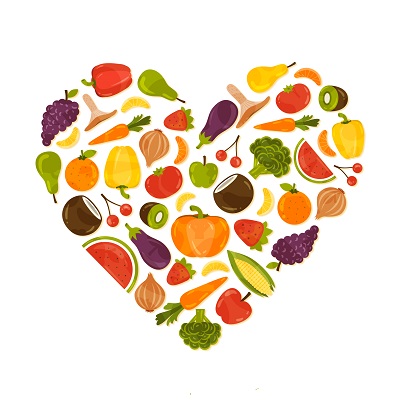 Thinking of ditching meat in your diet? Becoming a vegetarian is a huge decision that requires commitment. Many people do it for various reasons, such as animal welfare, religious reasons or environmental concerns.
Thinking of ditching meat in your diet? Becoming a vegetarian is a huge decision that requires commitment. Many people do it for various reasons, such as animal welfare, religious reasons or environmental concerns.
However, one of the benefits of switching to a meatless diet you should not overlook is how it can potentially reduce heart disease and stroke risk.
A statistical update in December 2014 by the American Heart Association showed that heart disease is the leading cause of death worldwide.
The data gathered from 190 countries showed that heart disease is responsible for 17.3 million deaths that year and they expect it to rise to 23.6 million deaths by 2030.
What’s more, next to heart disease, stroke comes in second as the leading cause of death around the world. Although heart disease and stroke affect two different vital organs of your body, the heart, and brain, these two medical conditions have a major common factor.
Heart disease that can lead to a heart attack and stroke occurs when a clot in your artery completely blocks blood flow. Reduced blood flow results in reduced oxygen supply throughout your body. When there is not enough oxygen cells die which can make your organs, in this case, your heart or brain, to stop working.
Over time, fats deposit in the artery wall forming a plaque. The plaque can break and form a clot that can grow and may eventually completely block a section of the artery.
Now, where does the fat come from? Yes, you got that right. The food you eat is one of the culprits. Red meat such as beef, lamb, and pork, has more saturated fat. Consumption of saturated fat also known as bad fat can increase cholesterol in the blood which contributes to the buildup of plaque in the arteries.
It is a fact that meat and animal products contain nutrients your body needs. According to the American Heart Association, eating meat is not completely unhealthy as long as you limit the portions and practice cooking methods that help to reduce its fat content.
Then again, if you want to get rid of bad fat and cholesterol all together for health reasons, you can just go and turn yourself into a vegetarian. Seriously though, you can’t just sleep a meat-eater and wake up a vegetarian the next morning.
It takes time and careful planning but reduced risk of heart disease and stroke are definitely excellent reasons to go meatless.
Findings of a large study published in the American Journal of Clinical Nutrition showed that vegetarian people are 32 percent less likely to seek professional medical help or die from heart disease compared to people who consumed fish and meat.
The researchers analyzed the data of almost 45,000 people, 34 percent of which were vegetarians, who registered for the European Prospective Investigation into Cancer and Nutrition (EPIC)-Oxford Study in 1993.
Monitoring of the participants lasted until 2009 and after ruling out other controlling variables, such as age, physical activity, alcohol consumption, smoking and living conditions; results showed that vegetarians are 32 percent less likely to suffer from heart disease than meat consumers.
As observed, they had lower cholesterol level and blood pressure which are contributing factors of heart diseases and stroke.
According to Dr. Peter McCullough and Dr. William Abraham, heart health experts, vegetarianism helps reduce risks of heart disease not because of the healthy nutrients you get from it but due to the absence of saturated fats and sodium found in meat diets.
Not only may that, cutting off meat from your diet can help you lose weight. Did you know that being overweight or obese makes you more susceptible to developing heart disease or suffer from a stroke? By switching to a plant-based diet, you can decrease your intake of saturated fat and calories to shed off those excess pounds.
With the increasing numbers of people who suffer from heart disease and stroke, switching to a meatless diet is a great option for anyone to consider. It’s never too late to make the switch now. Just make sure your body gets all the necessary nutrients to keep it healthy and working properly.
Better yet, consult with a health or diet professional.






